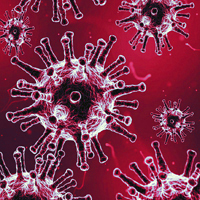COVID-19: when, along with aging, sex matters

Submitted: 23 October 2020
Accepted: 25 November 2020
Published: 18 December 2020
Accepted: 25 November 2020
Abstract Views: 462
PDF: 288
HTML: 4
HTML: 4
Publisher's note
All claims expressed in this article are solely those of the authors and do not necessarily represent those of their affiliated organizations, or those of the publisher, the editors and the reviewers. Any product that may be evaluated in this article or claim that may be made by its manufacturer is not guaranteed or endorsed by the publisher.
All claims expressed in this article are solely those of the authors and do not necessarily represent those of their affiliated organizations, or those of the publisher, the editors and the reviewers. Any product that may be evaluated in this article or claim that may be made by its manufacturer is not guaranteed or endorsed by the publisher.
Similar Articles
- Israel Oluwasegun Ayenigbara, Olawale Akanbi Moronkola, COVID-19: measures to protect older adults from SARS-CoV-2 infection , Geriatric Care: Vol. 6 No. 2 (2020)
You may also start an advanced similarity search for this article.

 https://doi.org/10.4081/gc.2020.9421
https://doi.org/10.4081/gc.2020.9421




